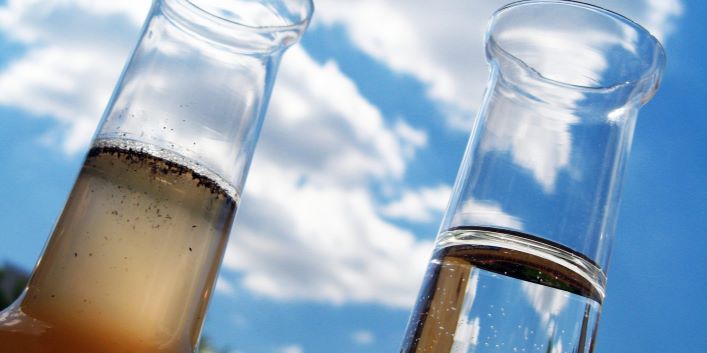

The Government has raised an alarm over the rising levels of toxicity in the rivers as well as leaching into the groundwater. In a response to a question in the Rajya Sabha, the Union Ministry of Environment, Forests and Climate Change (MoEFCC) also admitted that the problem of groundwater contamination was alarming in Madhya Pradesh, Rajasthan, Uttar Pradesh, and Odisha.
The government informed the parliament that not only is the level of poisonous substances going up in the rivers of the country due to the absence of adequate sewage treatment facilities, the groundwater is also getting contaminated because of excessive use of chemical fertilizers.
The reply said that the Central Ground Water Board (CGWB) had cautioned that levels of fluoride, arsenic, nitrate and iron ore were beyond the acceptable limits in various states. The board pointed out that one of the probable causes of high levels of nitrate in groundwater was excessive use of chemical fertilizers in agriculture.
Reda: Unsustainable. 4 reasons why India’s growth priorities remain unsustainable
According to CGWB, only 37 percent of sewage was being treated in the country and as a result the rivers were getting polluted. To tackle the problem, 2,522 million liters of water per day (MLD) of 34 rivers in the 16 most-affected states were being treated under the National River Conservation Plan (NRCP).
An estimated 61,948 MLD of sewage was generated in the urban areas, of which only 23,277 MLD was treated through 816 sewage treatment plants (STPs) across the country, the ministry said adding that according to the state-wise data of the Central Pollution Control Board (CPCB), Uttar Pradesh, Tamil Nadu and Maharashtra were the worst-hit states.
Maharashtra generated 8,143 MLD of sewage, of which 5,160.36 MLD was treated in 76 STPs, the figures presented by the CGWB said. Uttar Pradesh generated 7,124 MLD sewage and treated 2,646.84 MLD in 73 STPs, whereas an equal number of STPs treated 1,799.72 MLD of the 5,599 MLD of sewage generated in Tamil Nadu, the figures showed. Punjab occupied the top spot when it came to sewage treatment, the board said, adding that of the 1,664 MLD sewage generated in the state, 1,245 MLD (about 75 per cent) was treated in 86 STPs.
According to the CGWB figures, 43 districts in Madhya Pradesh are affected by excess fluoride, 51 by excess nitrate and 41 by excess iron ore in the groundwater. In Rajasthan, 33 districts are grappling with the problem of excess fluoride, nitrate and iron ore in the groundwater.
As many as 28 to 59 districts in Uttar Pradesh and 26 to 30 districts in Odisha were also facing the issue, the board said. Across the country, 423 districts were facing the problem of excess nitrate in the groundwater, whereas 370 districts had excess fluoride and 341 had excess iron ore in the groundwater, the CGWB report said.
The ministry said the board was keeping an eye on the situation through a network of 15,974 water-quality monitoring wells, adding that under the NRCP, the number of STPs was also being increased across the country.
The map of the country showing various pollutants presents a grim picture with almost all states, except Arunachal Pradesh, have some form of water-related issue that has been building up for decades. The alarm raised by the government is proof that there has to be a course of action defined and implemented to arrest the rapid deterioration.
1. The mandate for blending Compressed Biogas (CBG) with natural gas has come into effect…
Andhra Pradesh is striving towards greening its energy sector with quite some speed. In a…
With an objective to bolster India’s green energy goals, a Tripartite Agreement has been signed…
The Union MNRE Minister Pralhad Joshi launched the Green Hydrogen Certification Scheme of India (GHCI)…
India’s energy conglomerate Bharat Petroleum Corporation Limited (BPCL) has commissioned a 5MW green hydrogen plant…
In a historical development, the European Space Agency (ESA) has successfully launched its pioneering ‘Biomass’…